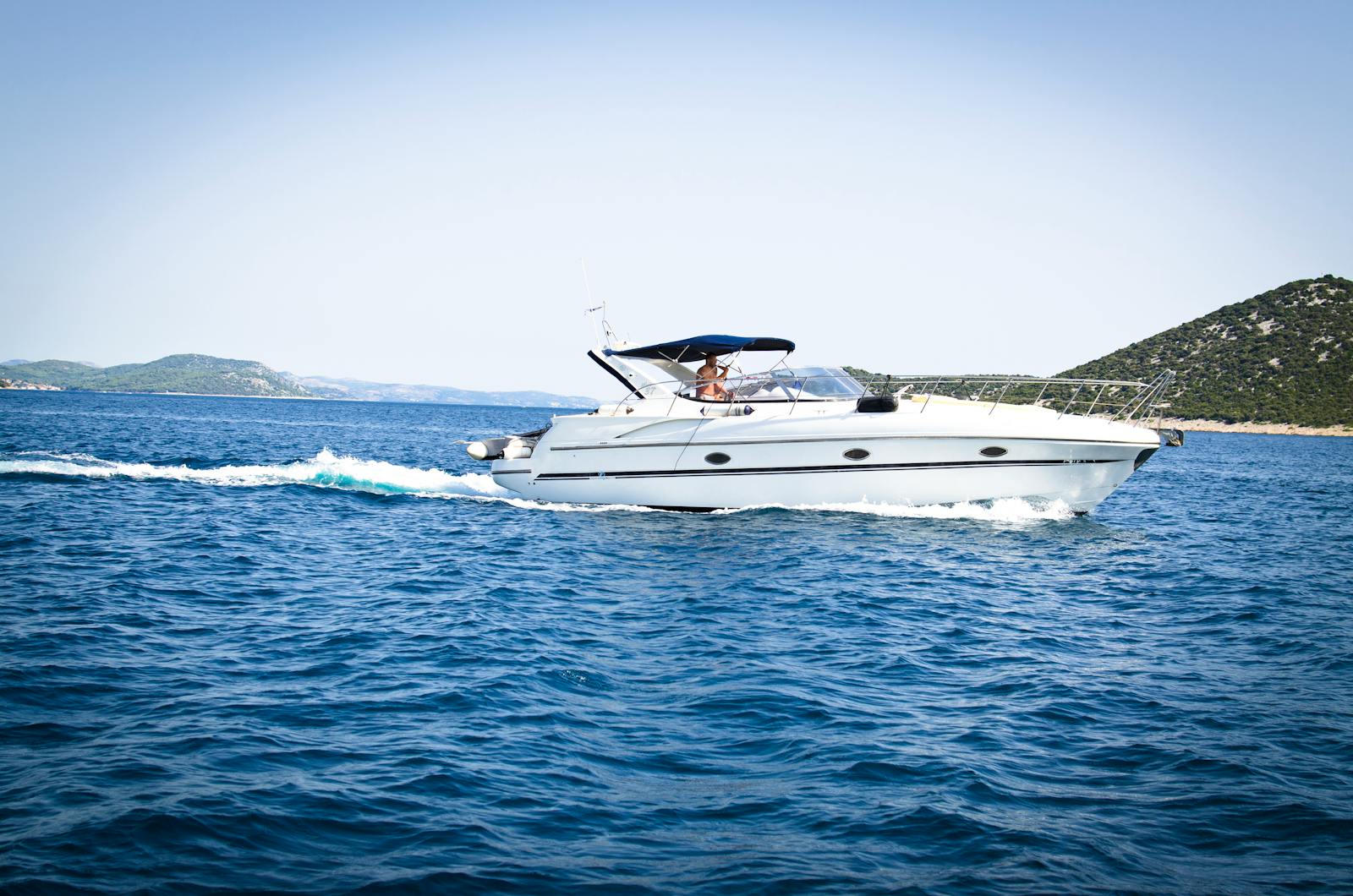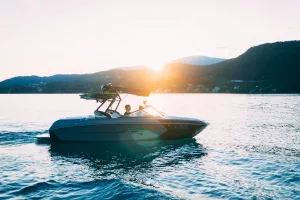Buying a boat is a significant investment that offers years of enjoyment, whether for fishing, cruising, or watersports. However, owning a boat also comes with various responsibilities and considerations. Before diving into the world of boat ownership, it’s essential to educate yourself about the key factors that can influence your purchasing decision. From maintenance costs to safety features, understanding these elements can help you make a well-informed and financially sound choice.
Here are 15 crucial things you should know before buying a boat.
1. Determine Your Primary Use
Before purchasing a boat, you need to decide how you plan to use it. Boats are designed for different purposes, and your intended activities will greatly influence your choice. Some common boat types include:
- Fishing Boats: Designed with space for rods, coolers, and live wells, and may include trolling motors for freshwater or saltwater fishing.
- Cruisers and Yachts: Ideal for overnight trips, with sleeping areas, kitchens, and other amenities.
- Speedboats and Watersports Boats: Equipped for wakeboarding, water skiing, and other high-speed activities.
- Pontoon Boats: Perfect for leisurely cruising and hosting groups of friends or family on calm waters.
Understanding your primary use will help narrow down the type of boat that best suits your lifestyle.
2. New vs. Used Boat
Deciding whether to buy a new or used boat is a key consideration. Each option has its advantages and drawbacks:
- New Boats: Offer modern features, warranties, and the latest technology, but come with a higher upfront cost.
- Used Boats: Generally more affordable, but may require more maintenance and repairs depending on their condition and age. You’ll also want to thoroughly inspect a used boat for wear and tear, such as engine issues or hull damage.
Researching both new and used options can help you make an informed decision that aligns with your budget and needs.
3. Total Cost of Ownership
The purchase price of a boat is just the beginning. Many first-time buyers overlook the total cost of ownership, which includes ongoing expenses such as:
- Insurance: Boat insurance protects against damages, theft, and accidents. Premiums vary based on the boat’s type, size, and location.
- Storage: Whether at a marina or in dry storage, you’ll need to budget for storing your boat when not in use.
- Fuel: Larger boats with powerful engines consume more fuel, increasing operating costs.
- Maintenance and Repairs: Routine maintenance, such as engine servicing, cleaning, and hull inspections, adds to the cost of ownership.
Factor these ongoing expenses into your budget to avoid surprises after your purchase.
4. Boat Financing Options
Unless you’re paying in cash, you’ll need to consider financing options. Boat loans are available through various lenders, including banks, credit unions, and marine lenders. When seeking financing:
- Interest Rates: Boat loan interest rates tend to be higher than auto loans but lower than credit cards. Your credit score will affect the interest rate offered.
- Loan Terms: Loan terms can range from 5 to 20 years, depending on the amount borrowed and the lender’s conditions.
- Down Payment: Most lenders require a down payment of 10-20% of the boat’s purchase price.
Shop around for the best loan terms and interest rates to ensure your boat fits within your financial plan.
5. Licensing and Registration
Just like cars, boats need to be registered and licensed in most regions. The process typically involves:
- Registration Fees: These vary depending on the state or country and the size of the boat.
- Boat Safety Courses: Many areas require boat owners to complete a boating safety course to ensure they understand basic navigational rules and safety protocols.
- Compliance with Local Laws: Each state or country may have specific laws and regulations about boating safety equipment, speed limits, and no-wake zones.
Understanding and complying with local boating laws is crucial to avoid fines and ensure a safe boating experience.
6. Boat Size and Storage Options
The size of the boat you purchase will affect not only its performance and capabilities but also your storage options. Larger boats require more space, whether docked at a marina or stored on land. Consider the following:
- Marina Slips: Larger boats will require a slip at a marina, and fees can vary greatly depending on the location and amenities.
- Trailering: If you plan to trailer your boat, ensure you have the proper vehicle and equipment to transport it safely. Some boats require heavy-duty trucks or SUVs for towing.
Consider where you will store your boat year-round to ensure you have adequate space and budget for these arrangements.
7. Maintenance Requirements
Boats, like cars, require regular maintenance to stay in good condition. Failing to keep up with maintenance can lead to costly repairs down the line. Common maintenance tasks include:
- Engine Servicing: Regular oil changes, fuel filter replacements, and inspections are essential for maintaining the boat’s engine.
- Hull Cleaning: Boats used in saltwater require frequent hull cleanings to remove salt buildup and prevent corrosion.
- Electrical System: Inspecting and maintaining the boat’s electrical system ensures the safe functioning of lights, navigation systems, and communication devices.
Understanding the time and costs involved in maintenance can help you determine whether you’re prepared for boat ownership.
8. Safety Equipment
Safety is paramount when boating, and all boats are required to carry certain safety equipment to protect passengers and comply with local laws. Key safety gear includes:
- Life Jackets: Ensure there are enough life jackets for every passenger on board, and that they are the correct size.
- Fire Extinguisher: A marine-grade fire extinguisher is required in case of an engine or electrical fire.
- First Aid Kit: A well-stocked first aid kit is essential for handling minor injuries while on the water.
- Flares and Signaling Devices: Flares, air horns, or other signaling devices are required to alert others in case of an emergency.
Ensure your boat is fully equipped with the necessary safety gear before setting out on the water.
9. Fuel Efficiency and Range
Boats, especially those with larger engines, can consume significant amounts of fuel. It’s important to consider the fuel efficiency and range of the boat you’re interested in, particularly if you plan to use it for long trips. Factors that influence fuel consumption include:
- Engine Size and Type: Larger engines generally consume more fuel, especially at higher speeds.
- Hull Design: Some hull designs are more fuel-efficient, especially for cruising.
- Speed and Weight: Boats that travel at higher speeds or carry more weight will typically consume more fuel.
Understanding the fuel costs and range of your boat will help you plan trips and manage your operating budget.
10. Hull Type and Performance
The type of hull a boat has will influence its performance, stability, and fuel efficiency. Common hull types include:
- Flat Hulls: Ideal for shallow waters but less stable in rough seas.
- V-Shaped Hulls: Provide better stability and smoother rides in choppy water but may consume more fuel.
- Catamarans: Known for their stability and efficiency, catamarans are great for long-distance cruising but are often more expensive.
Consider the type of water you’ll be navigating and the performance you require when selecting a boat hull type.
11. Consider Your Boating Experience Level
If you’re new to boating, it’s crucial to select a boat that matches your experience level. Some boats are easier to handle and maintain than others. Larger or more complex vessels may require a higher level of expertise to operate safely.
- Boating Classes: Consider taking a boating course to familiarize yourself with handling, navigation, and safety protocols.
- Practice in Calm Waters: Start boating in calm, familiar waters to build your skills before tackling larger bodies of water or rougher conditions.
If you’re a beginner, opting for a smaller, simpler boat may be a better choice as you learn the ropes.
12. Resale Value
While boats typically depreciate over time, some retain their value better than others. If you think you may sell your boat in the future, consider factors that affect resale value, such as:
- Brand Reputation: Boats from reputable manufacturers often retain value better than lesser-known brands.
- Maintenance History: Keeping detailed maintenance records can increase your boat’s resale value.
- Condition: Boats that are well-maintained, with no damage to the hull or engine, tend to fetch higher resale prices.
Choosing a boat with good resale potential can help you recoup some of your investment if you decide to upgrade or sell in the future.
13. Insurance Costs
Boat insurance is essential to protect your investment, but premiums can vary widely depending on factors such as the boat’s value, location, and intended use. Typical coverage includes:
- Liability Insurance: Covers damages or injuries to others caused by your boat.
- Comprehensive Coverage: Protects against theft, vandalism, and weather-related damage.
- Agreed Value vs. Actual Cash Value: Agreed value policies offer fixed compensation for your boat’s value, while actual cash value policies account for depreciation.
Be sure to factor in the cost of insurance when budgeting for boat ownership.
14. Test Before You Buy
Before making a final decision, always take the boat for a test run. This will give you a better understanding of how the boat handles, its comfort level, and its overall performance on the water. Key things to assess during a test run include:
- Engine Performance: Does the boat accelerate smoothly, and does the engine run quietly?
- Comfort: Is the seating comfortable, and is there enough space for your intended activities?
- Maneuverability: Does the boat handle well in different water conditions, and can it turn and dock easily?
A test run is an essential part of the buying process and can help you avoid purchasing a boat that doesn’t meet your expectations.
15. Environmental Impact
Modern boat buyers are becoming increasingly conscious of their environmental impact. Many new boats come with eco-friendly features such as fuel-efficient engines, electric propulsion systems, and biodegradable cleaning products. Additionally, consider:
- Fuel Efficiency: A more fuel-efficient boat will not only save you money but also reduce your carbon footprint.
- Alternative Energy Sources: Some boats are powered by solar energy or electric motors, which are more environmentally friendly than traditional gasoline engines.
Choosing a boat with a lower environmental impact can help you enjoy the water responsibly while minimizing harm to marine ecosystems.
Conclusion
Buying a boat is a significant financial and lifestyle decision, and it’s important to approach the process with a clear understanding of what’s involved. By considering factors such as the total cost of ownership, financing, maintenance, safety, and environmental impact, you can make a well-informed decision that aligns with your budget, experience level, and boating goals. Taking the time to research and plan will ensure that your boat ownership experience is enjoyable and stress-free for years to come.




